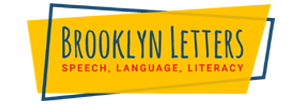The Importance of Phonological Processing in Learning to Read and Write

Introduction
Phonological processing plays a vital role in our ability to understand and use language effectively. It involves using phonemes, the sounds of one’s language, to process both spoken and written language. In this blog post, we will explore the definition of phonological processing defined by the American Speech-Language-Hearing Association and its significance in developing reading and writing skills. Additionally, we will discuss the impact of phonological process disorders on children’s learning abilities while highlighting that not all struggling readers and writers have a history of such disorders.
Understanding Phonological Processing
According to the American Speech-Language-Hearing Association, phonological processing encompasses various skills, including phonological awareness, phonological working memory, and phonological retrieval. The ability to recognize and control the sounds of language, such as distinguishing individual sounds (phonemes) in words, combining sounds to make words, or segmenting words into their constituent sounds, is referred to as phonological awareness. Phonological working memory involves the ability to temporarily store and manipulate phonological information, while phonological retrieval refers to the efficient and accurate retrieval of phonological information from long-term memory.
The Role of Phonological Processing in Reading and Writing
Phonological processing is crucial for acquiring and developing reading and writing skills. Phonological awareness, in particular, serves as a foundational skill for reading and spelling. When children are able to recognize and manipulate individual sounds within words, it becomes easier for them to decode unfamiliar words, understand the relationships between letters and sounds, and, ultimately, comprehend written text.
Research has consistently shown that children who experience phonological process disorders during their early years are at a higher risk of facing difficulties in phonological awareness, reading, and spelling when they begin formal schooling. These disorders can manifest as challenges in accurately perceiving and producing phonemes and in the ability to recognize and manipulate sounds within words. Early identification and intervention for such children are crucial to support their development of fundamental literacy skills.
Fundations, developed by the Wilson Language Training Corporation, is a classroom program designed for whole-class instruction in early literacy skills. It's hares similarities with Wilson and Orton-Gillingham, employing multisensory, systematic, and explicit teaching methods. Structured and sequential phonics, spelling, and handwriting instruction enable gradual skill development.

Beyond Phonological Process Disorders
While phonological process disorders pose a significant risk to reading and writing abilities, it is important to note that not all children who struggle with learning how to read and write have a history of such disorders. Difficulties in reading and writing can arise from various factors, including but not limited to inadequate instruction, lack of exposure to print, limited vocabulary, and poor comprehension strategies.
Other factors, such as attention deficits and language comprehension deficits, can also contribute to challenges in literacy development. Therefore, it is essential to consider a holistic approach when assessing and addressing the needs of struggling readers and writers, considering a wide range of cognitive and linguistic factors that may be influencing their performance.
Conclusion
Phonological processing is a fundamental aspect of language acquisition and plays a crucial role in developing reading and writing skills. Children who experience phonological process disorders during their early years are at a higher risk of facing difficulties in phonological awareness, reading, and spelling.
However, it is important to recognize that not all struggling readers and writers have a history of phonological process disorders. Multiple factors can contribute to challenges in literacy development, necessitating a comprehensive assessment and intervention approach to support all children in their journey toward becoming proficient readers and writers.
By understanding the significance of phonological processing and addressing the individual needs of learners, we can foster a strong foundation for literacy and language development.
Chat with Us Today! Our literacy specialists are ready to help you right now!
FREE CONSULTATION!!!
Call: (347) 394-3485, Text: (917) 426-8880
Email: [email protected]
(we respond to email right away!)
Craig Selinger
Latest posts by Craig Selinger (see all)
- NYC Middle School Transition Support Group - April 7, 2024
- Understanding Toddler Neurodevelopmental Evaluation - April 3, 2024
- Rare Diseases in New York City - February 29, 2024













